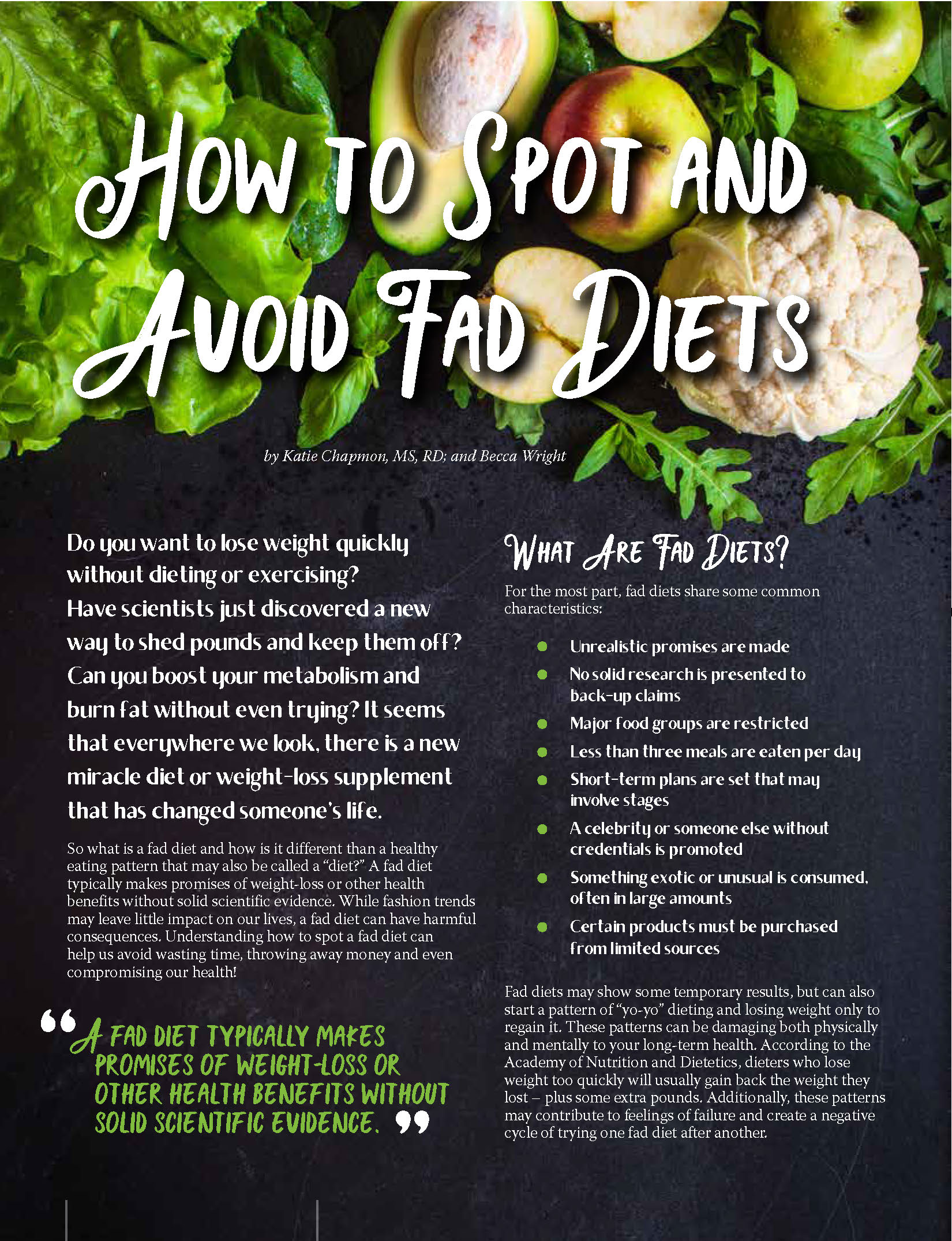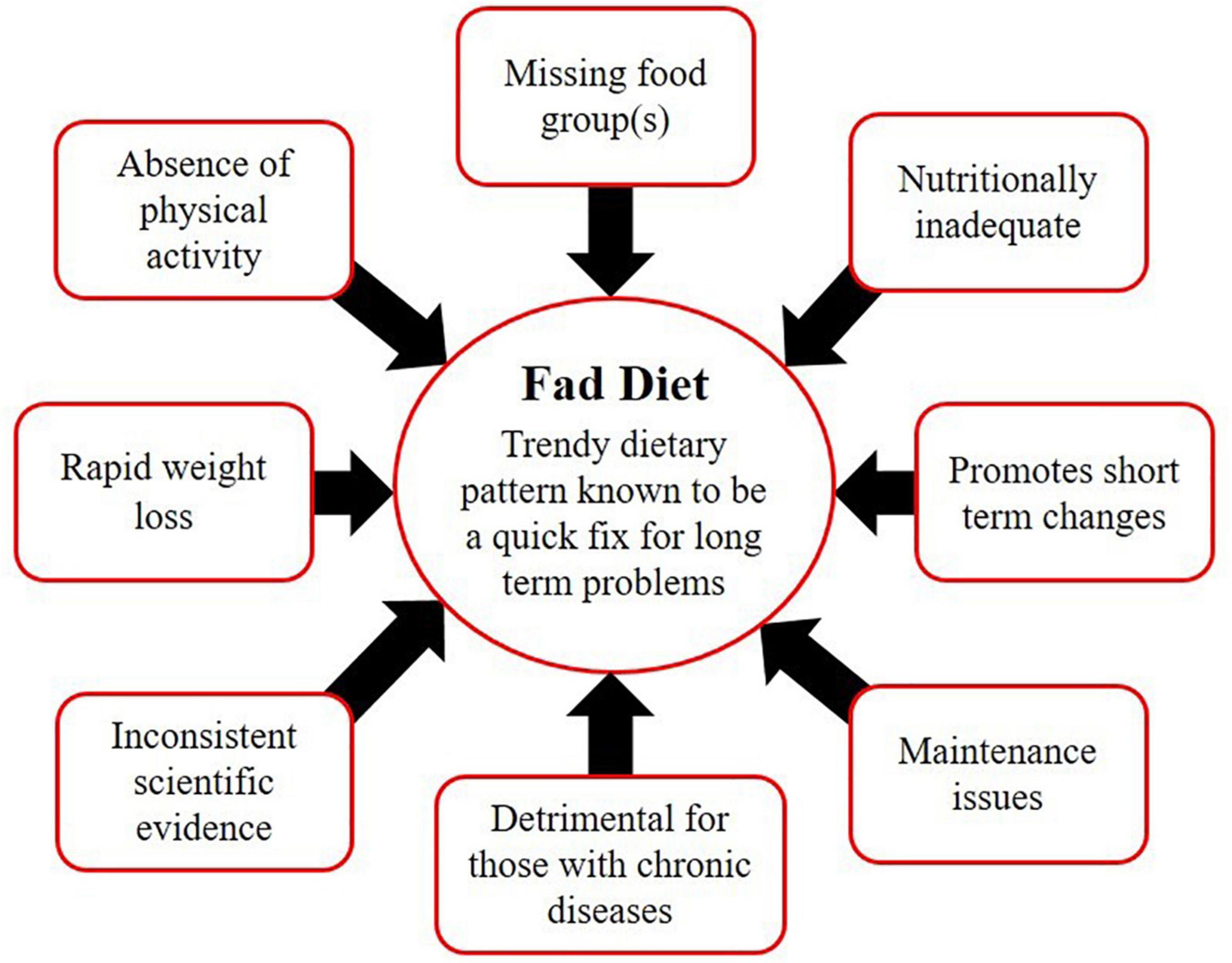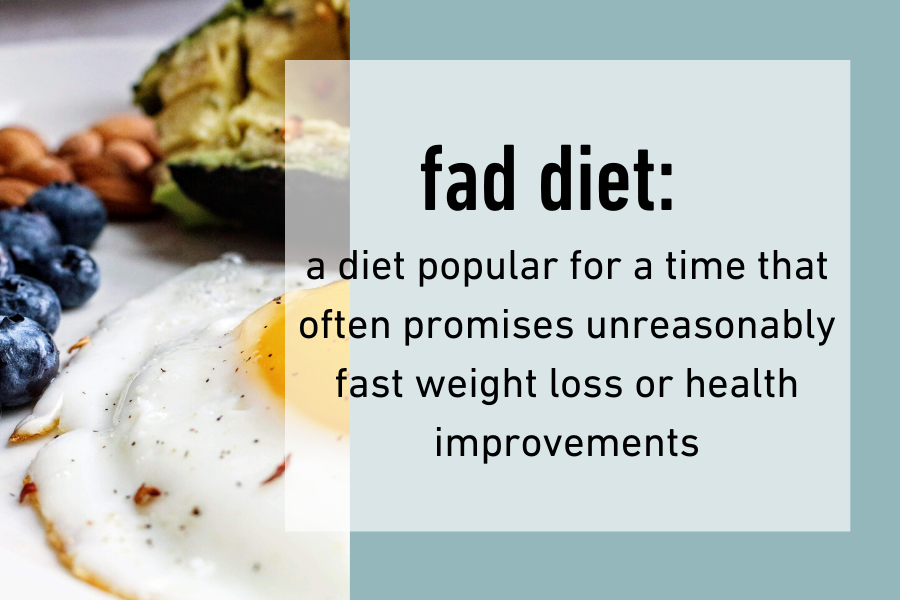The Truth About Fad Diets and How to Avoid Them

- Should You Train To Muscle Failure Every Set? What You Need To Know - March 4, 2025
- Nutrition in a Hurry: Top Post-Workout Snacks for Active People - February 20, 2025
- 15 Healthy Meal Prep Recipes: Your Weight Loss Made Easy - February 18, 2025
In “The Truth About Fad Diets and How to Avoid Them,” you’ll discover the ins and outs of popular but often misleading diet trends. This guide sheds light on the effectiveness, potential dangers, and marketing tactics behind fad diets, empowering you with the knowledge to make healthier choices. With this essential information at your fingertips, you can steer clear of the pitfalls of quick-fix solutions and adopt a more sustainable approach to your health and wellness journey. Have you ever found yourself tempted to jump on the latest diet trend you saw on social media or heard about from a friend? It’s so easy to get swept up in the promise of quick weight loss or magical health benefits. But before you take the plunge, let’s take a closer look at the world of fad diets and how you can steer clear of them.

What Are Fad Diets?
Defining Fad Diets
Fad diets are weight loss plans or eating patterns that promise rapid results. They often gain popularity quickly but tend to fade just as fast when their effectiveness and practicality come into question. These diets are usually characterized by restrictive or specific eating rules.
Common Features of Fad Diets
You can generally spot a fad diet by looking for a few key characteristics:
- Quick Weight Loss Claims: Promising to help you shed pounds rapidly.
- Little Scientific Evidence: Lack of backing from credible scientific research.
- Restriction of Food Groups: Advising you to eliminate entire food groups, like carbohydrates or fats.
- Celebrity Endorsements: Often promoted by famous personalities rather than health experts.
- Miracle Foods: Highlighting one “superfood” as the solution to all your dietary woes.
Why Do They Appeal?
Fad diets appeal to our innate desire for a quick fix. The lure of losing weight effortlessly or gaining a specific health benefit with minimal effort can be very attractive. Plus, social media has a knack for making these diets look both glamorous and feasible.
The Drawbacks of Fad Diets
Unsustainable Nature
One of the biggest issues with fad diets is that they are often not sustainable over the long term. Sure, you might lose weight initially, but maintaining that loss is another story. Most people find that they gain back the weight once they return to their normal eating habits.
Nutritional Imbalance
Eliminating entire food groups or drastically reducing your calorie intake can lead to nutritional deficiencies. Your body needs a variety of nutrients to function properly, and restricting yourself can harm your overall health.
Impact on Mental Health
The obsession with restrictive eating can lead to an unhealthy relationship with food. You might find yourself constantly thinking about what you can or can’t eat, which can lead to stress and anxiety. Over time, this can morph into eating disorders like orthorexia or anorexia.
Lack of Long-Term Benefits
Most fad diets offer short-term results without addressing the underlying habits that contribute to unhealthy eating or weight gain. The weight you lose on a fad diet often comes back as soon as you stop following it.
Examples of Popular Fad Diets
Keto Diet
The Keto Diet emphasizes high fat and low carbohydrate intake. While it can lead to initial weight loss and improve certain health markers, it is primarily designed for medical purposes like managing epilepsy and is not necessarily sustainable or balanced for general use.
Detox Diets
These diets claim to cleanse your body of toxins through juicing or fasting. However, your body already has organs like the liver and kidneys that effectively detoxify your system. Furthermore, detox diets often lead to nutrient deficiencies and can slow your metabolism.
Paleo Diet
The Paleo diet is structured around eating like our ancient ancestors, focusing on meat, fish, fruits, vegetables, nuts, and seeds while avoiding grains, legumes, and dairy. While it promotes healthy eating, it can also be restrictive and lacks long-term research on its benefits.
Atkins Diet
This diet involves low carbohydrate intake while promoting high protein consumption. It may result in weight loss, but often at the cost of long-term sustainability and heart health.
Cabbage Soup Diet
This extremely low-calorie diet requires you to eat large quantities of cabbage soup. It can lead to quick weight loss, but the lack of variety and nutrients makes it unsustainable and unhealthy in the long run.
The Science (or Lack Thereof) Behind Fad Diets
Limited Research
Most fad diets lack extensive, peer-reviewed research to back their claims. Many are based on anecdotal evidence or studies with small sample sizes that don’t consider long-term effects.
Placebo Effect
Any initial weight loss or health improvement you experience might be due to the placebo effect rather than the diet itself. Essentially, you believe the diet will make you healthier, and this belief manifests in temporary results.
Metabolic Impact
Your body’s metabolism can suffer due to the extreme nature of these diets. Rapid weight loss often leads to muscle loss and a reduced metabolic rate, which can make it harder to lose weight in the future.
Rebound Effect
Many people experience the rebound effect, where they not only regain the lost weight but add extra pounds because of slowed metabolism and loss of muscle mass during the diet.

The Psychological Impact
Emotional Eating
Restrictive diets can cause emotional stress and may lead to emotional eating. When you feel deprived, you’re more likely to binge on forbidden foods, which can lead to a vicious cycle of restriction and overeating.
Social Isolation
Following a strict diet can limit your ability to participate in normal social activities. Whether it’s dinners with friends or family gatherings, constantly monitoring your food intake can make social interactions stressful and alienating.
Body Image Issues
Fad diets often contribute to negative body image and self-esteem issues. When the unrealistic results don’t pan out, you might blame yourself for failing rather than recognizing that the diet was flawed from the onset.
How to Spot a Fad Diet
Too Good to Be True
If a diet promises unbelievably quick results with minimal effort, it’s likely too good to be true. Real health improvements take time and consistency.
Lack of Balance
Healthy diets are balanced and include a variety of foods in appropriate portions. If a diet restricts entire food groups or has you eating just one type of food, proceed with caution.
Celebrity Endorsements
While celebrities might swear by a certain diet, remember that they often have personal trainers, nutritionists, and other resources that the average person doesn’t have access to. Their results are not always replicable.
No Long-Term Plan
If the diet lacks a plan for maintaining your weight or health benefits once the initial phase is completed, it’s not designed for long-term success.

How to Approach Healthy Eating
Focus on Whole Foods
Eating a variety of whole, minimally processed foods is crucial for maintaining good health. This includes fruits, vegetables, lean proteins, whole grains, and healthy fats.
Listen to Your Body
Your body often knows what it needs. Pay attention to hunger and fullness cues, and try to eat when you’re actually hungry rather than out of boredom or emotional stress.
Moderation is Key
Rather than completely eliminating specific foods, practice moderation. Allow yourself to enjoy treats in small quantities to prevent feelings of deprivation.
Stay Hydrated
Sometimes, we mistake thirst for hunger. Drinking plenty of water can help control unnecessary snacking and keeps your body running efficiently.
Balanced Meals
Try to structure meals that include a balance of protein, carbohydrates, and fats. This not only ensures you get a variety of nutrients but also helps in keeping you full and satisfied.
Practical Tips to Avoid Fad Diets
Do Your Research
Before starting any new diet, do some homework. Look for credible sources, such as peer-reviewed journal articles, registered dietitian recommendations, or information from reputable health organizations.
Consult Professionals
If you’re considering a new dietary change, it’s wise to consult with healthcare professionals like a dietitian or a doctor. They can provide personalized advice based on your individual health needs.
Read Labels
Understanding what you’re putting into your body starts with reading and understanding food labels. Look for nutrient content rather than just calorie counts.
Plan and Prep
Meal planning and preparation can help you make healthier choices. When you have nutritious meals and snacks readily available, you’re less likely to resort to unhealthy options.
Stay Skeptical
Healthy skepticism can be your best friend in avoiding fad diets. If something sounds too good to be true, it probably is.
Balance Over Ban
Instead of banning foods, aim for balance. Enjoy a variety of foods, and don’t obsess over eliminating or labeling foods as “bad.”

Real-Life Success Stories
Avoiding the Yo-Yo Dieting Cycle
Take Jenna, for example. She spent years jumping from one fad diet to another. Finally, she decided to adopt a balanced eating plan and started focusing on portion control and incorporating various whole foods into her diet. The result? Sustainable weight loss and a healthier relationship with food without the stress and guilt associated with her previous dieting experiences.
Sustainable Weight Loss Approach
Then there’s Mark, who was persuaded by a friend to try a detox diet. He lost weight quickly but felt weak and irritable the entire time. After ditching the detox, he consulted a dietitian and developed a balanced meal plan that included his favorite foods in moderation. He’s now maintaining his weight and feeling healthier and more energetic.
Building a Sustainable Eating Plan
Identify Your Goals
Your reasons for wanting to adopt a new eating pattern might range from weight loss to improved health markers. Identify what you want to achieve to tailor a realistic and sustainable plan.
Create a Balanced Plate
A balanced plate typically includes:
- Proteins: Lean meats, fish, beans, or plant-based proteins.
- Carbohydrates: Whole grains, fruits, and vegetables.
- Fats: Healthy options like avocado, nuts, and olive oil.
Daily Activity
Incorporate physical activity into your daily routine. Exercise not only helps you manage weight but also improves overall health.
Mindful Eating
Practice mindful eating by paying attention to what and how you eat. Slowing down and savoring your meals can improve digestion and enjoyment.
Flexibility
Allow yourself some flexibility. It’s okay to indulge occasionally without feeling guilty. The goal is long-term habits, not short-term perfection.
Conclusion
Fad diets may offer tempting promises of quick fixes and miraculous results, but the truth is they often fall short of their claims. The restrictive nature, lack of nutrition, and psychological impacts make them unsustainable at best and harmful at worst.
Instead, focus on balanced, whole-food-based eating, and remember the principles of moderation and sustainability. By making small, consistent changes, you can achieve better health over the long term without the pitfalls of fad diets. So next time you’re tempted to try the latest diet trend, take a step back, do your research, and make choices that support your long-term well-being.
Table of Contents







